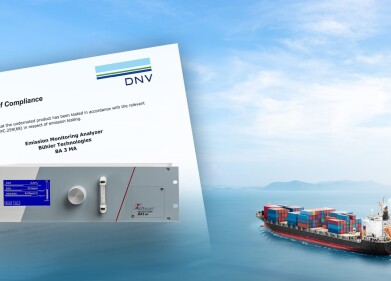Measurement and testing
Lithium Ion Batteries vs Hydrogen Fuel Cells - Which is Better?
Sep 13 2022
Around the world, demand for alternative energy solutions is booming. Both lithium ion batteries and hydrogen fuel cells will play an important role as governments take action to slash CO2 emissions and decarbonise the global economy. So, which is better? Read on as we put the two “eco-friendly” technologies head-to-head.
Lifespan
Unlike lithium batteries that deteriorate over time and eventually need to be replaced, hydrogen fuel cells offer a much longer lifespan. As long as hydrogen is available, fuel cells will continue to react with oxygen and generate electricity.
Environmental footprint
From contaminating water sources to increasing carbon dioxide emissions, lithium mining comes at a cost. While lithium ion batteries are marketed as an eco-friendly technology, the bigger picture says otherwise.
“Blowing up a mountain isn’t green, no matter how much marketing spin people put on it,” maintains Max Wilbert, who actively protests against lithium mines in the United States.
Like lithium ion batteries, hydrogen fuel cells also have an environmental footprint. The technology calls for platinum and aluminium, which both need to be mined. A rare element called iridium is also used to support electrolysis. This adds to the cost and environmental impact of hydrogen fuel cells.
Sourcing hydrogen is also a major point of concern. Ideally, fuel cells use “green” hydrogen produced by electrolysis from renewable sources like solar and wind power. However, this isn’t always possible. In many cases, hydrogen is “grey” which means it’s produced from fossil fuels and has a carbon footprint.
Energy storage density
In terms of energy storage density, hydrogen fuel cells generally outperform lithium ion batteries. This gives them a significant advantage when it comes to range. Hydrogen fuel cells are also lighter and more compact than high-load lithium ion batteries.
Addressing “range anxiety” in the EV market
In an exciting new breakthrough for the industry, lithium ion battery manufacturing giant Contemporary Amperex Technology Company Limited (CATL) has set a new benchmark for energy density. Following extensive testing, the company recently introduced Qilin, a new era of cell-to-pack (CTP) lithium ion battery technology.
“With a record-breaking volume utilisation efficiency of 72% and an energy density of up to 255 Wh/kg, it achieves the highest integration level worldwide so far, capable of delivering a range of over 1,000 km in a breeze,” reads a statement issued by CATL.
Mass production is expected to begin in 2023. The company says the new technology will address the “range anxiety” that’s preventing many motorists from embracing EVs.
What’s next for lithium ion technology?
There’s no denying the potential of lithium ion batteries. Over the coming decade, analysts predict the market will reach an estimated value of more than USD 135 billion by 2031. Find out more about the technologies that will help drive research and development and fuel growth in ‘Lithium Ion Batteries: Types, Testing & Uses’.
Digital Edition
PIN 26.1 Feb/Mar 2025
March 2025
Analytical Instrumentation - Elemental Analysis for Quality and Process Control at Refineries, for Lubricants and Wear Metals in Engine Oils - Synthetic Lubricants: New Developments - Scaling...
View all digital editions
Events
Apr 08 2025 Birmingham, UK
Apr 08 2025 Kielce, Poland
Apr 08 2025 Ravenna, Italy
Apr 08 2025 Southampton, UK
Apr 08 2025 London, UK



















